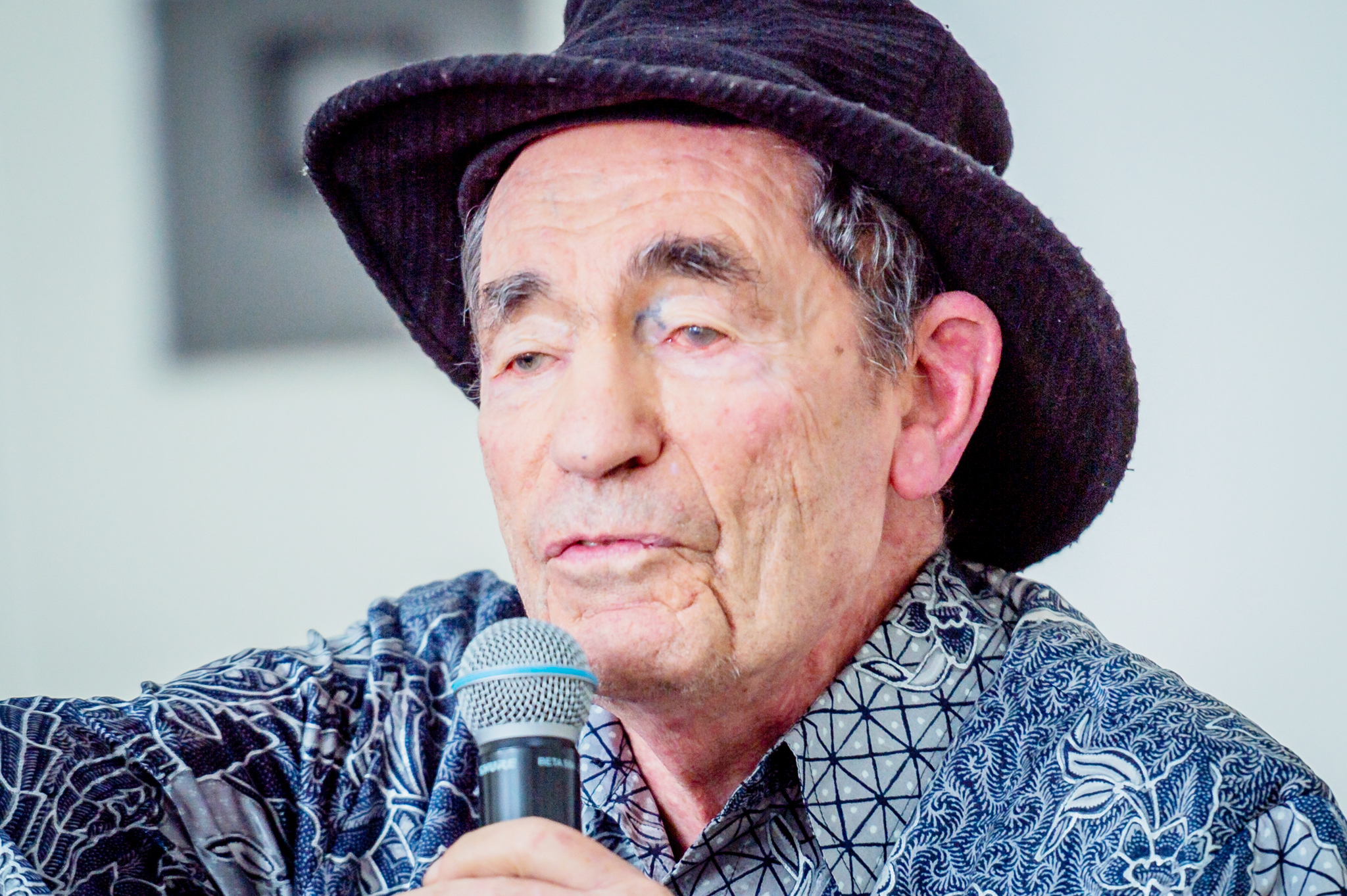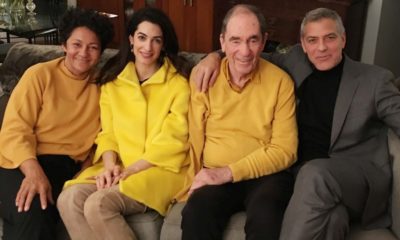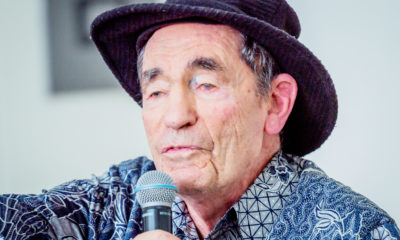
Featured Item

Albie Sachs on religion and the Constitution
Former Judge of the Constitutional Court Albie Sachs was the person behind the idea of starting the Constitution of South Africa with the words of Nkosi Sikelel’ iAfrika rather than the phrase, “In humble submission to Almighty G-d.”
So he told the audience at Beit Emanuel Progressive Synagogue in Johannesburg on 8 November, during a discussion about the tensions between religious expectations and the spirit of the Constitution.
Sachs told the story of how Michael Cassidy, the head of a prominent evangelical church, in 1990 asked him for the Constitution to start with reference to G-d.
Sachs said he wanted to avoid being dishonourable and doing something just for the sake of getting people on board, so he suggested that the Constitution start with Nkosi Sikelel’ iAfrika instead.
“That was a hymn of liberation, of unity, bringing us all together. It wasn’t crushing to those of us who were secular,” he said. “Instead of the invocation of G-d being a cause of division and disputation, it actually became unifying.”
Sachs said that as a child, he would go with his parents, Solly and Rachel, to his aunt and uncle for Passover and Rosh Hashanah. “I’m happy to identify as a Jew,” Sachs said. “That’s part of me, but my parents rebelled against religion, and took a stand against identifying with religion. That was the context in which I grew up. They were people of deep conscience about the world, evolution, transformation, and change. They were about actively engaging humanism.”
Sachs, however, became aware of the importance of religion while at a meeting on the Grand Parade in Cape Town as a 17-year-old about to join the Defiance Campaign. “An African man named Johnson, a big communist, sang at the Grand Parade, ‘One day, just as the Lord opened the Red Sea for the Israelites to pass through, we will get our freedom.’”
Sachs said he walked up to him, and said, “Johnson, I’m surprised that you’re quoting from the Bible and the Lord.”
He responded, “Comrade Albie, there are some things that politics can reach, and some things that politics can’t reach.”
Sachs said this view shocked him. “For me, the world would be much simpler if you could have a secular vision, but here was this person, a self-proclaimed communist, and this was really important to him.”
In December 1956, Oliver Tambo was going to marry Adelaide and be ordained as an Anglican minister. “The South African state decided to grab him, charge him with treason, and throw him into the Old Fort Prison, where the Constitutional Court is now,” Sachs recalled. “Eventually, after the long Treason Trial, the African National Congress (ANC) sent him out of the country to mobilise internationally. I worked closely with him on a number of different things. One day, he asked me to help him prepare his speech for a world conference on religion. He knew that I was secular, but he didn’t go to the religious desk of the ANC. He felt I had something that connected with him, and I felt there was something deep inside him that I could connect with.”
When Sachs was readying himself to be sworn in as a judge in the Constitutional Court, he wasn’t sure if he should raise his right arm and say, “So help me G-d,” or affirm, he said.
“I was torn. When I approached the age of 13, my parents said, ‘Do you want a Barmitzvah?’ I thought, if I go through the ritual of a Barmitzvah and I don’t believe that G-d exists, I’m being disrespectful to my conscience, but also to G-d. So, at this important moment, I want to affirm, but I also want to remember why we got a Constitution.”
He decided to raise his right arm in respect to Ruth First and the others he knew who lost their lives in the struggle for freedom.
Sachs recalled the first case that raised the question in the Constitutional Court of the meaning of religious freedom. The 7-Eleven chain store wanted to sell beer and wine on Sundays. “The law said no sales of beer and wine on Sundays, Good Friday, and Christmas.” Richard Goldstone, Arthur Chaskalson, and Sachs all had different opinions on the matter. “Arthur and three colleagues said, ‘Where’s the invasion of religious freedom? People can carry on with their prayers, organising their lives according to their beliefs?’ Goldstone said, ‘There’s an inequality issue. These are all Christian holidays. You can make that prohibition, but then you’ve got to include Muslim holidays, Jewish holidays, etc, to get equality.’ They said it was unconstitutional. I agreed. The fault was the state singling out a certain religion. The state can’t impose an orthodoxy on religion.”
In the Christian education case on corporal punishment, Sachs came up with a phrase that in an open democratic society, people can’t carve out exemptions from general law simply based on their religious beliefs. “At the same time, the state must do everything reasonably possible to accommodate those beliefs, and must go out of its way to do so. I’m happy to say that phrase was picked up by the House of Lords in a case in England. Now, the parents could continue to practice their beliefs at home, provided it didn’t breach the common law relating to assault, but the teachers couldn’t do [corporal punishment] in the public realm of the school.”
Sachs recounted a case about a Muslim woman receiving her lease from her late husband. “According to the lease, on the death of the registered owner, his surviving spouse could take over the tenancy. She said, ‘I’m the surviving spouse.’ The court said, ‘No, you’re not, a spouse has to be legally married. Muslim marriage isn’t recognised.’ I felt a kind of judicial rage in terms of the total, utter injustice of it. It was going along with prejudice, and Dikgang Moseneke said it was unjust and unfair. The great majority went along with my interpretation.”
Sachs also discussed the case of a Catholic family group asking the court to protect the rights of same-sex couples but not allow them to say that they were married. “We had to respond to the separate-but-equal argument. Do you strike down the Marriage Act so that nobody can use the word? if same-sex couples can’t, then nobody does. That can’t be what the Constitution intended. A large portion of the judgment then stated that same-sex couples are constitutionally entitled, as human beings, to express their love and commitment publicly and undertake the same responsibilities as heterosexual couples do.”








